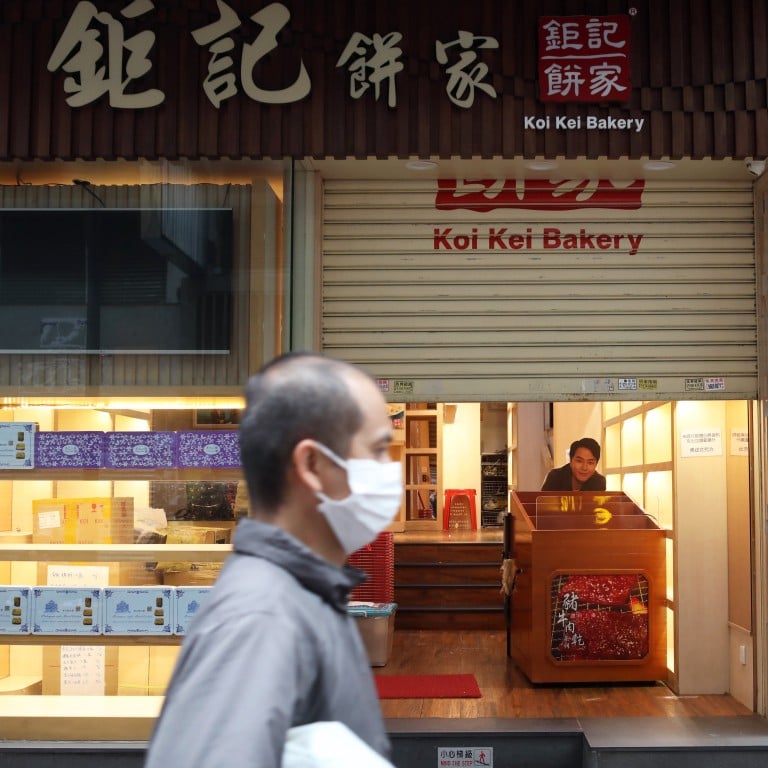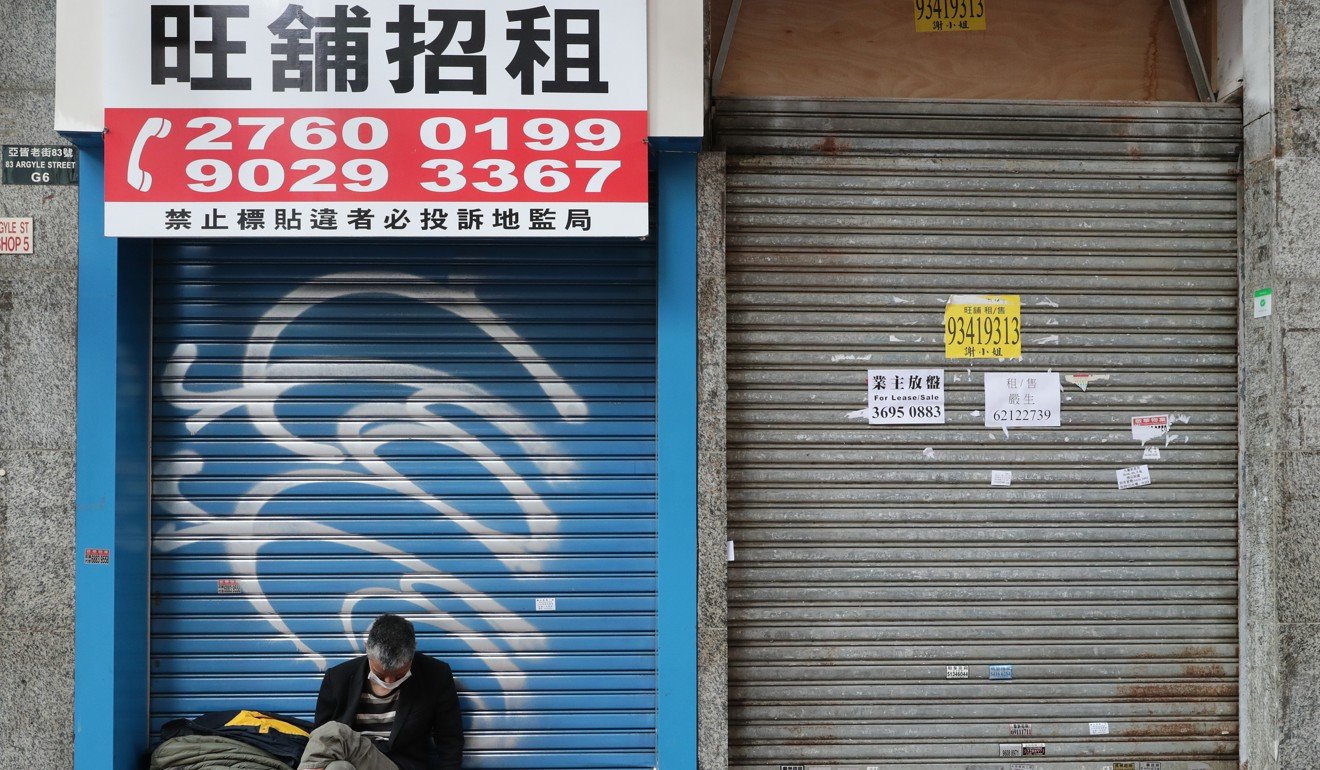
Hong Kong’s retail sales plummet 21 per cent in January as mainland visitors slow to a trickle amid coronavirus battle
- The steep drop was even worse than that for December, despite having the pre-Lunar New Year shopping season to buoy January sales
- Only supermarkets, driven by panic buying, and petrol stations were impervious to the down turn
Hong Kong’s retail sector, battered by a steep drop in mainland tourists attributed to the coronavirus battle, plunged by 21.4 per cent year to year in January, with the government warning of dire repercussions to the overall economy and joblessness.
The decrease to HK$37.8 billion (US$4.8 billion) was even worse than December’s revised year-to-year drop of 19.4 per cent, the Census and Statistics Department said on Monday.
A government spokesman noted that the sharp drop in retail sales continued even amid what is traditionally a peak shopping season – the lead-up to the Lunar New Year holiday.

Hong Kong Retail Management Association chairwoman Annie Tse Yau On-yee on Monday forecast retail sales in the first half of the year would drop anywhere from 30 to 50 per cent year on year. Even the lower end of that spectrum would be a Hong Kong record.
“We don’t know when the outbreak of the coronavirus will go away, and are very pessimistic about the prospect,” she said.
Citing a recent survey of the group, Tse said many of the association’s 9,000 members chose to send staff members on unpaid leave, lay off workers and even shut down stores.
“If you stroll along the shopping area on Nathan Road [in Kowloon], the majority of shops are shut much earlier than normal, at 7pm, and only a few close at 8pm and virtually none beyond 8pm,” she said. Before the coronavirus outbreak, shops normally closed for the day at 10pm.
Four in 10 hotel staff may lose jobs as coronavirus deters the few remaining visitors
Only supermarkets and petrol stations were impervious to the downturn, with grocery sales soaring 10.2 per cent in January as citizens started hoarding toilet rolls, rice, and sanitising products as the epidemic worsened.
A number of retailers have closed in the past few weeks, while furniture chain Pricerite Group, beauty retailer Sa Sa Cosmetics and jewellery firm Chow Tai Fook have announced plans to close shops, cut wages and lay off staff members.
“The business environment of retail trade has turned even more austere lately, as the threat of Covid-19 has brought inbound tourism almost to a standstill and caused severe disruptions to consumption-related activities,” the spokesman said. “The Government will closely monitor the situation and its repercussions on the overall economy and the employment market.”
The grim business outlook was largely driven by sliding visitor numbers.
The number of tourists was cut in half in January, with 53 per cent fewer visitors, at 3.2 million, in Hong Kong compared with the same month last year.
Sales could sink up to 50 per cent as city shuts out Chinese visitors amid outbreak
The daily average of 130,000 in the lead-up to the Lunar New Year holiday had dropped to 65,000 by late January and just 3,000 in February, after a near-total shutdown of land border crossings that began that month. A total of 47 jurisdictions have issued coronavirus-related travel advisories against visiting mainland China, with 28 including Hong Kong in their warning.
As of Monday afternoon, the city had 98 confirmed cases of the coronavirus that causes Covid-19 and two related deaths.
If analysts are correct, the measures will be desperately needed.
Iris Pang, Greater China economist with ING Wholesale Banking, said the worst is yet to come, as 2019 spending had already been greatly hampered by anti-government protests she believes is likely to regain momentum later in the year.
“Like how the months’ long protests have hurt retail sales, Covid-19 has a similar impact,” she said. “This means retail sales will continue to be hit hard.”
She warned that the protests will return once the outbreak dies down, as the city had yet to resolve the underlying issues driving the growing social rift.
Last October, retail sales dropped a record 24.4 per cent on the double whammy of the anti-government protests and the US-China trade war.

